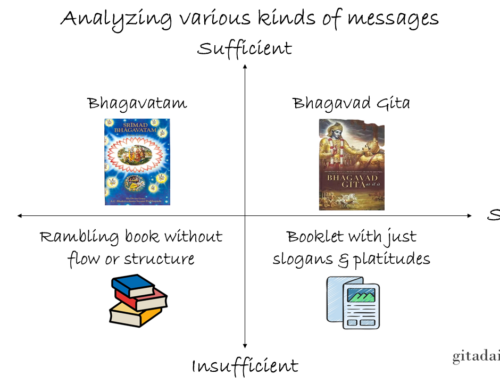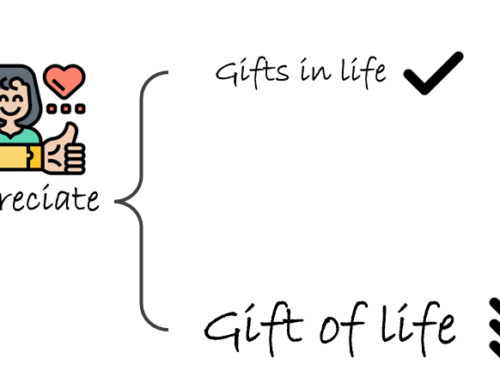Some of us may feel that our faith in Krishna would stabilize and increase if we could see his power through miracles: “If Krishna is truly supreme, then all he needs to do to solve my problems is just perform one miracle. Why doesn’t he help me by doing that?”
Understanding the answer to this question takes us to the heart of Gita wisdom – its ascending trajectory from material religiosity to spiritual devotion.
At the level of material religiosity, we see Krishna primarily as a source of blessings; we approach him not for who he is, but for what he can give us. We expect him to miraculously solve our problems and satisfy our desires. Even if he does both, our relief will be short-lived because in material existence both problems and desires are endless.
At the level of spiritual devotion, we see Krishna essentially as the object of love; we approach him for who he is, not for what he can give us. Paradoxically, when we don’t ask him for material blessings, we allow him to give us his greatest blessing: himself. By not being attached to our material desires we allow him to enter our heart and gradually conquer it by revealing his supreme attractiveness.
To get this ultimate blessing, we need to receive and live Krishna’s message of love, as did Arjuna. After hearing the Gita, Arjuna didn’t ask him to perform any miracles for removing obstacles. Instead, he firmly resolved to live Krishna’s message by (18.73) doing his will.
When we, like Arjuna, treasure Krishna’s message more than his miracles, he floods our heart with ever-increasing love and happiness. And that flood is his ultimate miracle.
Bhagavad Gita Chapter 18 Text 73
“Arjuna said: My dear Krishna, O infallible one, my illusion is now gone. I have regained my memory by Your mercy. I am now firm and free from doubt and am prepared to act according to Your instructions.”





Leave A Comment